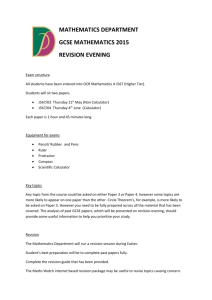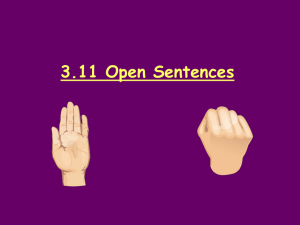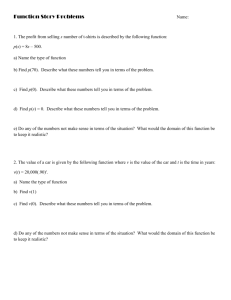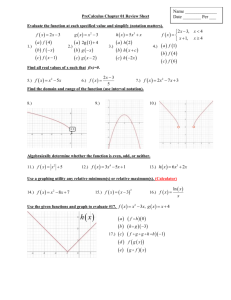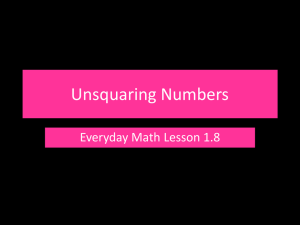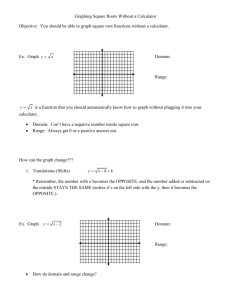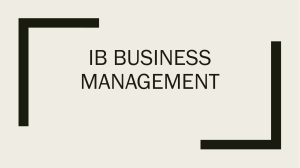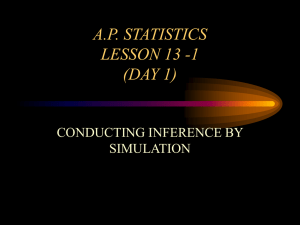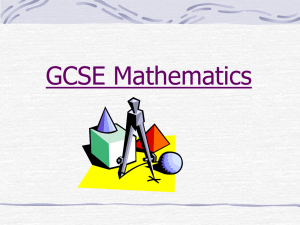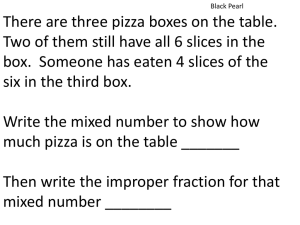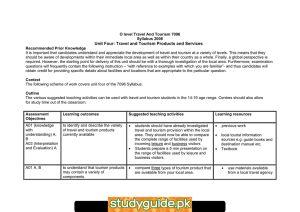Types of Questions - Allerton Grange High School
advertisement
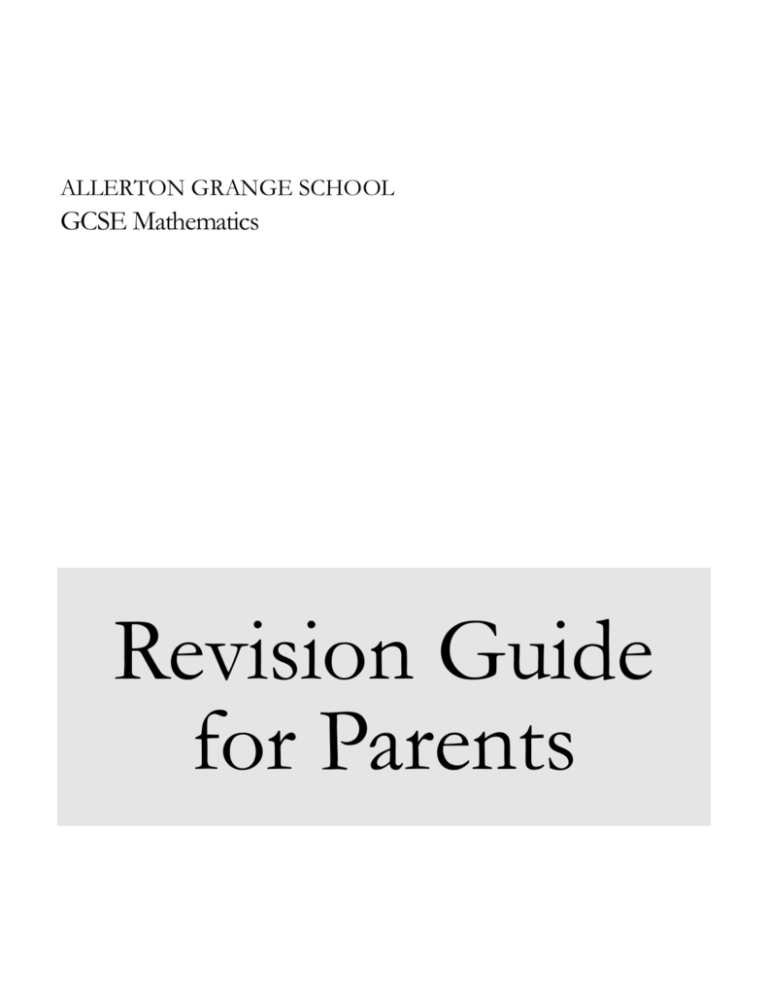
ALLERTON GRANGE SCHOOL GCSE Mathematics Revision Guide for Parents Table of Contents GCSE Overview Types of Questions In School Websites Revision Guides Equipment GCSE Overview Edexcel Linear Specification A Paper 1 Non Calculator Monday 9th June 2014 am Paper 2 Calculator Friday 13th June 2014 am Linear papers cover the whole of the mathematics Curriculum. There are 2 levels of paper Foundation GFEDC Higher D C B A A* Both papers are marked out of 100 In November 2013 the grade boundaries (out of 200) were: Foundation G 47 F 73 E 99 D 125 C 151 Higher E 15 D 31 C 63 B 101 A 139 A* 169 Grade boundaries can change so we want to make sure that in the run up to the exam our students are performing comfortably in their target grade. For example a student aiming for a C on a Foundation paper should aim to be getting about 70 to 78% in the run up to the exam. 1 Types of Questions A01 A02 A03 A01 These are basic straightforward maths questions. These test the student’s maths knowledge of each topic. A02 For these questions students need to select which maths to use to solve a real life problem A02 The students need to decide how to answer these questions and explain why. It is the A02 and A03 type questions that students are finding the most difficult and these are the areas in which parents can help the most. 2 A02 & A03 type Questions Real Life Questions that have come up recently have included Buying goods, calculating change Finding the cost of 8 cakes if you know the cost of 5. Filling the missing amounts in a bank statement or invoice Changing money into different currencies Reading an electricity meter and calculating the bill Finding areas involving gardens, wallpaper, carpet, paint Planning a visit to Grandma given a bus timetable and when to be back for. Calculating best buys Working out postage & packing charges for online goods 3 Revision Opportunities In School Students have a lot of exam practice in lessons, this then enables us to see which topics the class needs to cover. It also gives students an idea of what grade they are currently working at and what topics and type of question they need to improve on. As well as lessons there is an hours revision session every Thursday from 3 to 4 pm. Where students can revise with a teacher on hand to give extra help when needed. Homework is extremely important in the run up to the GCSE. This takes the form of a past paper to be completed every week. Class teachers will then endeavor to mark the paper and return it to the students the following lesson. Mathswatch After the last exam we analysed how our students revised and how they did. We found that one of the most effective ways of revising was to use the Mathswatch website. We have subscribed to this and so it is free for our students, all they need is their username and login. There are also worksheets that the students can print out using their school printing budget. Other Websites MyMaths.co.uk all students have a login for this site where students can do lessons, activities, games and test themselves. There are also handy booster packs that the students need to pick the right level for them. Particularly useful for Foundation students are the D to C boosters. BBC Bitesize Mangahigh.com Doddlelearn.co.uk Revision Guides If your child prefers to learn from a book Revision Guides are available from us or WHSmiths or Amazon. Make sure you have the correct level and exam board (see the front of this guide) Calculators For the calculator paper students need a scientific calculator. Every brand of calculator works differently so it is essential students are using a calculator they are familiar with in the exam. In school we use CASIO calculators and would recommend them as they are very clear to use. Equipment Black pen (2 if possible in case one runs out of ink), sharpened pencil, ruler, compass, protractor, rubber and scientific calculator. Last of All The students who perform best are those who enter the exam room confident, relaxed, healthy and rested. Revising is important but looking after yourself is the best possible preparation. 4
